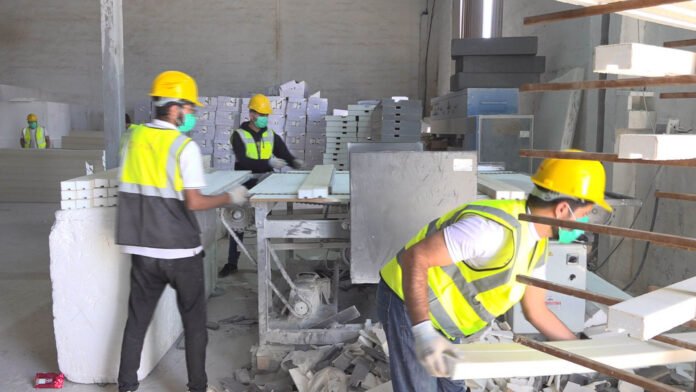Trade in the Kurdistan Region is booming. The current Kurdistan Regional Government (KRG) cabinet has registered 31% of all companies in the region’s history. Out of 38,000 companies on record, nearly a third were registered during the ninth cabinet’s term. This surge in registration reflects the region’s growing economic strength.
However, Baghdad blocks progress by interfering with the movement of goods from Kurdistan to central and southern Iraq. These obstacles are hindering further growth despite Kurdistan’s strong role as a national supplier.
Deputy Minister of Trade and Industry, Sarwar Hawari, recently spoke about these developments. He appeared on a television program to highlight the KRG’s major strides. According to Hawari, the current cabinet has built essential infrastructure using domestic revenue. This includes three large grain silos constructed in Qushtapa, Rovia, and Kalar. These projects, each costing between 19 and 23 billion dinars, were funded through partnerships between the public and private sectors.
Hawari also emphasized the ministry’s wide responsibilities. These include registering companies and trademarks, issuing licenses for imports and exports, and regulating trade across Kurdistan. Furthermore, the ministry plans and coordinates industry and trade projects in collaboration with the Board of Investment.
The deputy minister pointed out that this surge in company registrations has spurred job creation and economic competition. It has reduced monopolies and opened new doors for both local and international businesses. These benefits have boosted economic activity at border points and within the region.
One notable achievement involves the KRG’s investment in a cement factory run jointly with the private sector. The revenue from this facility helped fund the construction of the three new silos, a move aimed at enhancing food security and infrastructure.
Despite all these gains, Baghdad blocks progress by setting up bureaucratic roadblocks. “Seventy-five to eighty percent of goods produced in Kurdistan go to southern and central Iraq,” Hawari explained. “Only 20 percent is consumed locally.” Yet, the federal government continues to disrupt this trade. Checkpoints delay shipments, and new restrictions are imposed regularly. Iraq imports from foreign countries, yet refuses to accept the same goods from within its borders, Hawari added.
This contradiction damages both Kurdistan’s producers and Iraq’s broader economy. While demand in southern and central Iraq grows, federal authorities prioritize foreign imports over domestic cooperation.
In conclusion, while the Kurdistan Region builds a strong trade sector and invests in vital infrastructure, Baghdad blocks progress with harmful policies. These barriers threaten to undo many of the region’s economic achievements.

